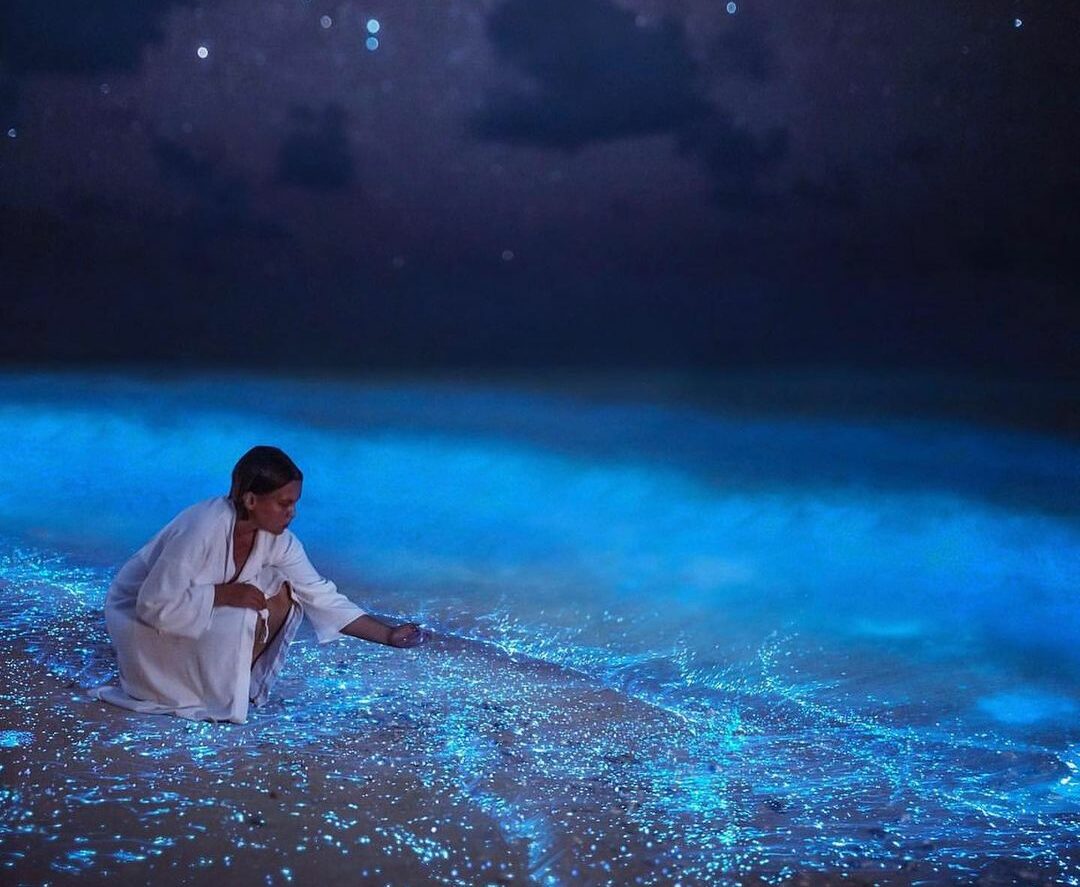
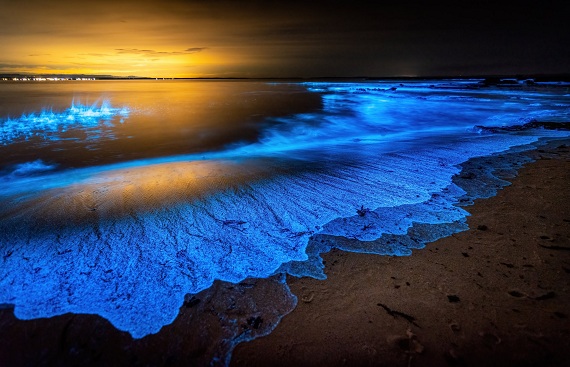
The glowing sea is one of nature’s most magical sights.
Imagine standing on the beach at night, the sound of the waves gently lapping against the shore. Suddenly, as if by magic, the water starts to glow with a beautiful blue light.
This enchanting scene, called the glowing sea, is a natural wonder that has fascinated people for centuries.
But what causes this magical glow? Let’s find out.
What is the glowing sea?
The glowing sea, also known as bioluminescence, is when certain organisms in the ocean produce light. This light can be blue, green, or even red, but the most common colour is blue.
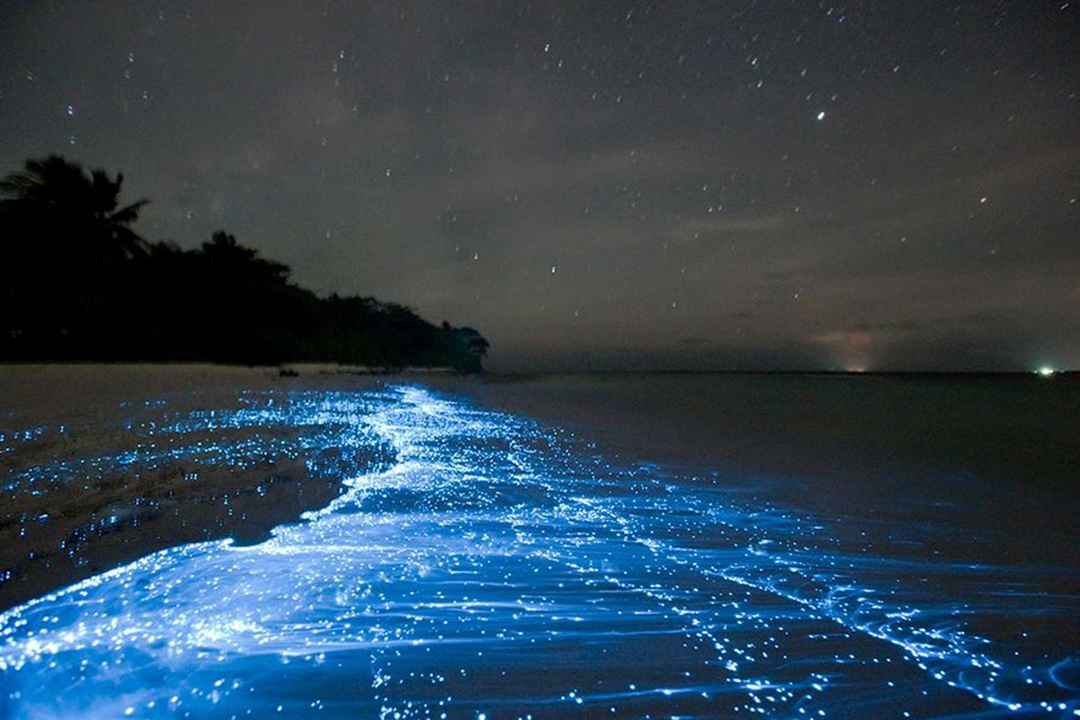
The glow is created by tiny organisms called plankton, which float in the ocean. These special plankton are called dinoflagellates. When they are disturbed by waves, boats, or even swimming fish, they light up, creating the stunning glow we see.
How does bioluminescence work?
Bioluminescence happens because of a chemical reaction inside the plankton. They have a special substance called luciferin inside their bodies. When luciferin mixes with oxygen, it produces light. This is similar to how fireflies glow in the dark. The light produced is called “cold light” because it doesn’t produce heat like a light bulb does.
Where can you see the glowing sea?
The glowing sea can be seen in many parts of the world, especially in warm, tropical waters. Some famous places to see this natural light show include:
1. Mosquito Bay in Puerto Rico: Known as one of the brightest bioluminescent bays in the world.
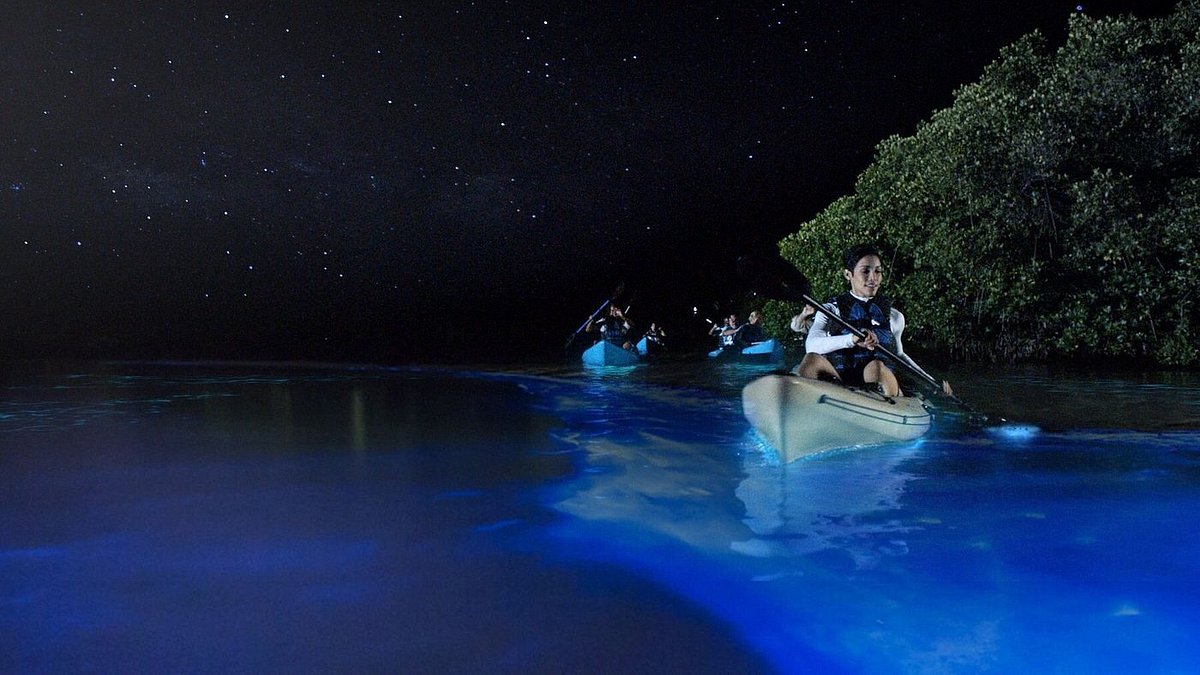
2. Toyama Bay in Japan: Famous for glowing blue firefly squid.
3. Vieques in Puerto Rico: Another stunning bioluminescent bay.
4. Ha Long Bay in Vietnam: Known for its glowing plankton.
ALSO READ: Did you know it is impossible to sink in the dead sea? Here's how
Why do plankton glow?
You might wonder why these tiny plankton go to all the trouble to produce light.
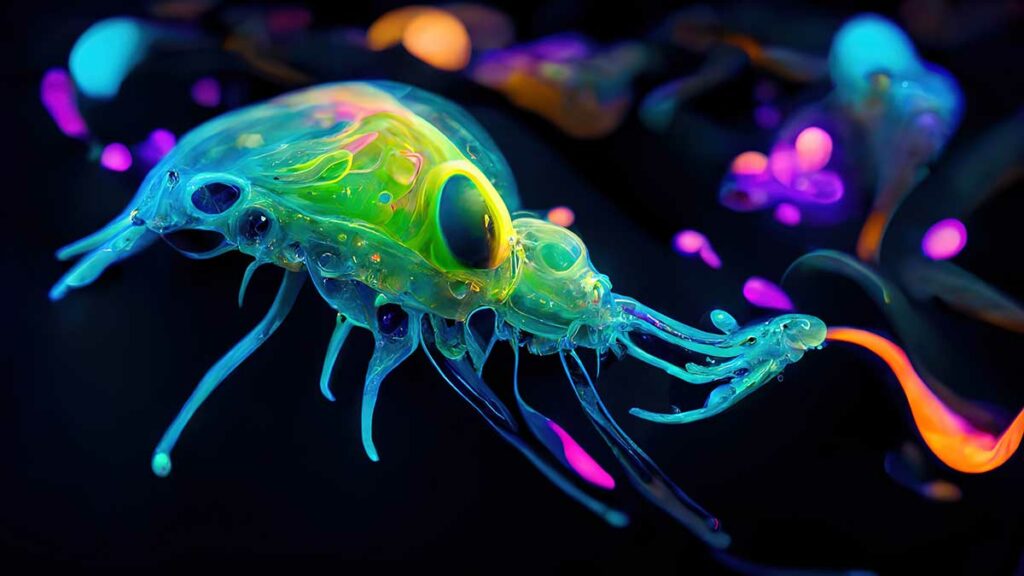
Scientists believe there are a few reasons for this:
- Defence mechanism: The light can scare away predators or confuse them, giving the plankton a chance to escape.
- Communication: Some scientists think the glow might help plankton communicate with each other.
- Attraction: The light might attract bigger predators that eat the plankton’s enemies.
Fun facts about the glowing sea
Here are some interesting facts about bioluminescence that will make you even more amazed by this natural wonder:
- Bioluminescence has been around for millions of years. Even dinosaurs might have seen glowing seas.
- While most bioluminescence happens in the sea, some fungi, insects, and even some types of fish can glow too.
- Sailors have told stories of glowing seas for centuries, often believing it was caused by magic or spirits.
How to experience the glowing sea safely
If you’re planning to see the glowing sea, here are some tips to make sure you have a great and safe experience:

- Pick the right time: The best time to see bioluminescence is during a new moon when the sky is darkest.
- Avoid pollution: Light pollution from cities can make it hard to see the glow. Find a spot away from bright lights.
- Respect nature: Don’t disturb the wildlife too much. Enjoy the glow, but be gentle with the water and the creatures living in it.
The glowing sea is one of nature’s most magical phenomena. Whether you see it while on vacation or in your local waters, it’s an experience you’ll never forget.
Read Full Story

















Facebook
Twitter
Pinterest
Instagram
Google+
YouTube
LinkedIn
RSS